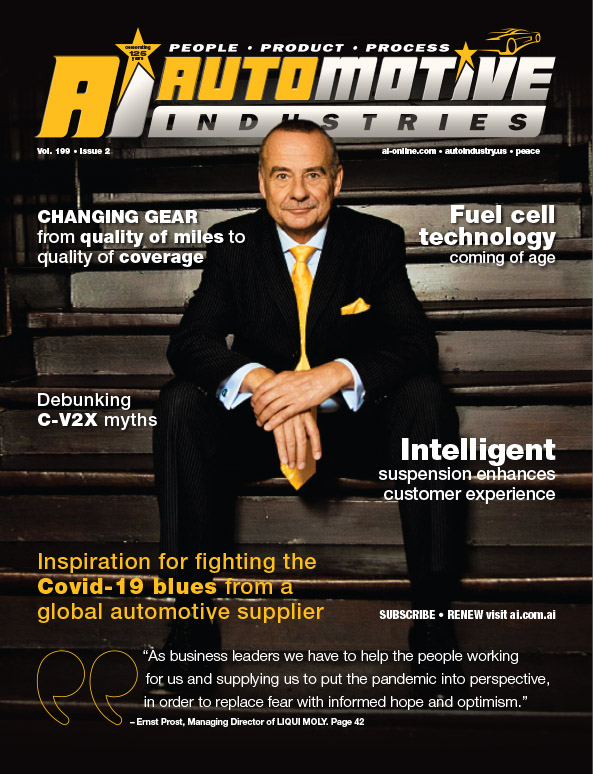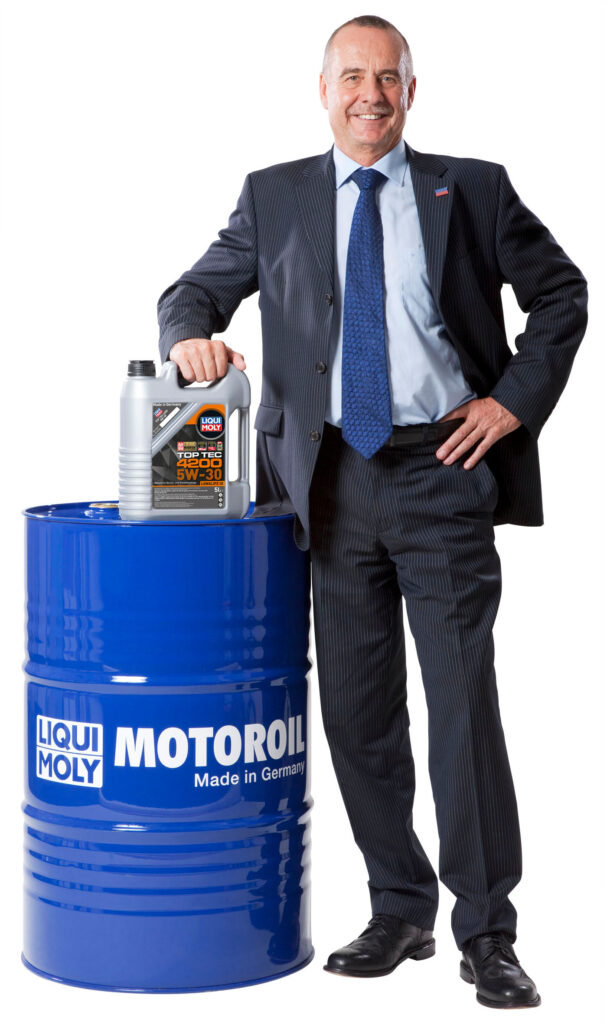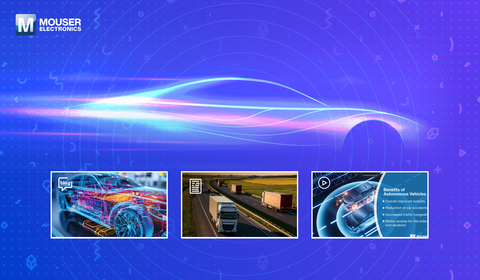

Director of LIQUI
MOLY with some of
the products.
Globally, many companies in the automotive and other sectors have responded to the Covid-19 induced downturn by focusing inward to cut costs.
This has put thousands out of work or on short pay, further exacerbating the economic effects of the response by governments to the virus. The World Trade Organization predicts that all regions of the world will see trade plummeting by double digit numbers.
For business leaders there is an alternative to cutting back. Within the motor industry one of the leading examples of what can be done is LIQUI MOLY, which specializes in motor oils, lubricants, vehicle care products and additives. Management and staff are hard at work identifying the opportunities presented by the pandemic.
Across the board and around the world, employees have been able to focus on growing the business and meeting production targets because LIQUI MOLY Managing Director Ernst Prost has assured them that no-one in the company would lose their jobs, even it meant waiving his own salary. Since then, he has taken pains to address employees and clients on a regular basis to keep inspiring them to identify opportunities in the current, dark times.
Automotive Industries (AI) asked Prost and other LIQUI MOLY top executives – namely Sebastian Zelger CEO, LIQUI MOLY USA and Peter Baumann, Marketing Director at LIQUI MOLY – to share their thoughts and philosophy about how business leaders should adapt to a Covid-19 world. The objective is to encourage other managers and shareholders in the automotive sector to power their way out of the many challenges Covid-19 has put their way.
AI: How has the work/life balance been affected by so many people working remotely?
Prost: I do not like this formula for work/life balance. It’s plain wrong. As if life and work were opposites. Work is a part of life – and an important one, at that. I think every person should have a job that fulfils them and that gives them pleasure and satisfaction.
Work gives you satisfaction, recognition, selfaffirmation and the good feeling of having achieved something. I would even say that work is an essential part of a fulfilled life. Ask any unemployed person – regardless of the money and social contacts one has through work. If only leisure time is sacred and the opposite is perceived as drudgery or something bad, something is wrong with our society.
Of course, the proportion and the time required must be right. And that’s why I have banned overtime. In my wild years, I always waited for our competitors to enjoy a long weekend, close down for company vacations or otherwise be absent, leaving their “castle” unguarded and abandoned. We always made good use of these moments. Whenever our competitors were on vacation, we wowed the customers with the best offers.
I still love this tactic of using a surprise to get ahead during the opponent’s absence. Even now in the crisis, we are playing our game by these rules. Most companies take cover, cut their budgets and put all kinds of activities on hold, or simply sit at home and wait until it’s all over.
We do the opposite: exploit the opportunities that every crisis offers by taking a counter-cyclical approach. We are investing in markets, people and our brand right now. Let us make the most of what we are doing right now.
We can still enjoy it later – when we have won the game.
AI: How do you see workers in the USA juggling the work-life balance and how has the COVID-19 disease changed this?
Zelger: There is no stock answer, as the response differs from person to person. I know for a fact that many of my friends are actually re-thinking their way of life. Before COVID19, they were in a rush constantly with their job. They did not have the time to take a breath to figure out if this hectic lifestyle is what they truly want. Now,

LIQUI MOLY USA.
all of a sudden, they have the time to think about what they really want and care about – and some are about to switch their careers.
Other friends of mine who are furloughed at this point can’t wait to get back to work, as they miss not only the work itself, but also the social component of it. Yes, work is very social!
To sum up: COVID-19 will change the way work is seen for some. Others won’t feel that they need to change anything, and will be happy just to get back to work.
One factor of work life balance though – as the expression already reveals – can be found in the total amount of time you have available to spend outside of your work. Of course. some people love their job so much they actually wouldn’t need any time off work. They are fulfilled by it. Their life is their work and their work is their life. I think that this mostly applies to me and part of me wishes that everybody could think like this, but of course this doesn’t apply to everyone.
Generally, employees in the United States have less vacation time than my German colleagues. Furthermore, I do see that many of US employees (Not our LIQUI MOLY employees) do not only have one job they are committed and dedicated to, but two or even three jobs at the same time, for multiple reasons.
In order to have a healthy work life balance from the “time” point of view, it is quite difficult to achieve a healthy work life balance if you don’t have time for the “balance part”.
POST-COVID BUSINESS
AI: What do you think working life will look like after the pandemic dies down?

Director at LIQUI MOLY.
Baumann: I´m a positive-thinking guy. So, I guess everybody should and will be more focused on really important topics, on personal relationships, on service beside selling, on avoiding unnecessary costs, business trips, meetings etc. For sure, all kinds of digital support will play a bigger role.
Prost: What scares me the most right now is the cacophony of the government and its departments, competence centers and think tanks and talk shows that fill the ears of frightened citizens. Some expert / politician warns against giving the all-clear too early, while another sees the light at the end of the tunnel through her or his ministerial glasses.
There are conflicting messages coming from the same institutions, be they government or so-called expert groups. There is continual fear, warnings, suggestions, demands, admonitions and, of course, endless discussions between experts and politicians. These discussions just illustrate the lack of consensus on what should and needs to be done.
Mask yes or no? Or maybe? An example of what is happening around the world is the political promises here in Germany by economics minister Peter Altmaier that “not a single job” would be lost. In the next breath the same minister tells us that “we must prepare ourselves for serious, deep and lengthy cuts.”
The feedback from our operations around the world is that people everywhere are being subjected to conflicting messages, which make one anxious because it seems it is a case of the blind leading the blind.
Yes, something has to be said to the citizens and the people – we need to be told if we are to be frightened and worried by the disease, but these warnings should be backed up with actual facts. As business leaders we have to help the people working for us and supplying us to put the pandemic into perspective, in order to replace fear with informed hope and optimism. Angst essen Seele auf (Fear eats the soul) is the title of a film by Rainer Werner Fassbinder from 1974.
The deliberately grammatically incorrect title in German has taken root in my mind. We all have fears, fear of loss, relationships, failure and death. There is no end to the things you can be fearful of. The Gauls in the famous comic series, Asterix & Obelix were always afraid that the sky would fall down on their heads. Yes, we may laugh, but aren’t many fears irrational, surreal and frightening?
Waking up in a sweat, plagued by nightmares and tormented by primal fears. I get that a lot. Sometimes it takes me a few hours to push the dark and gloomy thoughts away. Fear sits in your bones, deep down they say, so fear is normal, just like many other things in life that we don’t like.
THE POWER OF POSITIVE THINKING
AI: What message is the world waiting for from governments, organizations such as the WHO and other partners who are battling the coronavirus and its effects?
Prost: Everybody needs a clear plan and schedule as far as possible. And a common sense in this. People are not stupid. Everybody understands the situation. In total and also from his personal perspective. Nobody needs “doom and gloom messages” and descriptions of all the negative things.
People need leaders, and no liars. We have the option to close our eyes and to hope nobody sees us or we keep all together, motivate each other, see the chances and keep on fighting for our business and our jobs. Each crisis delivers chances and business opportunities.
AI: How has the mixed messaging by various leaders in the developed world impacted on business sentiment?
Zelger: To start off, I think most of our world leaders do want the best for their citizens and try balance protection of health and economic interests. There are mixed messages simply because we have different circumstances in each country, and even within the same country, the same institutions of this country, there are many different opinions about this topic and how to handle it.
You ask an economist – you get one opinion. Ask a virologist – you get another opinion. Ask a politician – he’ll take the opinions of both economist and virologist and make his own mind about it. On top of that, you have different ideologies and priorities, which lead to the fact that there are many different ways how countries respond to this crisis.
Of course, this may lead to confusion amongst federal and state governments, companies, as well as their leaders and their employees. Therefore, every company has to make their own decision about what is best for them in the given circumstance. There are companies which are very flexible and willing to adapt (virtual training, e-commerce opportunities, just to name two examples) which – as a matter of fact in certain segments – gives them a tremendous competitive advantage amongst their competitors.
While some companies are asleep / on hold/ or shut down completely and furlough their employees during these times, others actually invest in their personal, customers and brand awareness in order to be prepared when business comes back. I do want to acknowledge that this cannot be applied to all companies of course, we at LIQUI MOLY are fortunate that the circumstances allow us to act the way we do.
AI: What should we be expecting from our governments?
Prost: Everyone knows that epidemics and pandemics visit us from time to time. How come we were caught off guard so brutally and so unprepared? When my son, Benjamin, was in hospital for several weeks in October 2018, I was able to experience our German health system first-hand. Not through glossy brochures, but by a nurse who had to look after 18 rooms with two patients each during the night shift all by herself. So, some people had to wait on the toilet bowl a little longer until someone came to clean their butts. Many nurses and caregivers were in the ward until late in the evening and also the next day early in the morning (with a break for sleep, I hope).
As a born-and-bred Swabian, I’m already firmly in favor of saving money. But certainly not for ruinous cost-cutting that will cut our future. It’s shameful how badly we pay people to operate on us or clean our behinds. Surely, we cannot expect this to be done out of pure charity and helpfulness – although this is the case – without paying the people who accomplish such a Herculean task a proper living wage. It’s indecent, it’s unfair and, as you can see now, it’s plain stupid.
This little virus will probably cost us 1, 2 or even 3 trillion euro worldwide. But actually, it is not the virus that is causing this damage, but the short-sightedness of those who are entrusted with taking care that an epidemic or pandemic does not immediately throw the whole world completely off balance. The focus on saving money has resulted in a human and economic catastrophe.
PROSPECTS FOR REVIVAL
AI: How do you see business reviving as lockdowns are eased globally?
Baumann: Let me talk about our business. I think everybody understands much better now how important logistics and personal mobility are. Someone who owns a vehicle is not left stranded by the closure of public transport. Our business will be reviving quickly as these vehicles need scheduled servicing and high-quality products to run properly. On the logistics side trucks, rescue vehicles, public transportation, mining and agricultural equipment and more need lubricants to keep operating.
Prost: This crisis is uncovering a lot of hidden truths. Three times a day, I am reminded of the following saying: “A person reveals his true worth in adversity”. And there are surprises in both directions. But the German poet and philosopher, Friedrich Hölderlin also said, “Where danger is, grows. The saving power also.”, and we can see this in action every day. Some of us are rising to the challenge by taking action where needed and making our own personal contribution to overcoming this crisis and helping others.
However, it is not always those of us with the strongest arms and broadest shoulders (and biggest wallets) who are in the frontline where we really should be, but rather those with the biggest hearts who our beloved God filled with empathy and compassion, creativeness and a sense of responsibility. But there are others who cannot help putting themselves first in times of crisis and can only think of themselves. It must have been a similar situation on the Titanic. We are not on a boat, but in a company with a crew of 1,000 people on board and 10,000 passengers – our customers, our business partners.
When was the last time you heard or saw anything from our competition? All of them have run for cover, in home office or short time work. The only thing left working is the answering machine. That’s just great! This is typical of a multi-national corporate company and I didn’t expect anything else. Anyone who now chooses to sit on their sofa and wait until everything is back to normal hasn’t understood what a company actually stands for and what defines us as human beings.
In Germany, we hear talk which separates the economy on one side and the citizens on the other. That isn’t how we should see it. We generate two thirds of our business from our exports outside Germany. We can’t just take. We have to give too! That is the least what all 1,000 of the LIQUI MOLY employees should, can and must now do. I am counting on them now – as I have done for the last 30 years.
STRONG LEADERSHIP
AI: How important is it to you personally that a company and its leadership should show the way forward during dire straits?
Prost: As always in uncertain times people need a leader who takes the responsibility, shows the direction and is leading from the front. This includes the whole management team and is motivation for everybody. These leaders should not only pump up their muscles. It´s much more important to show social responsibility, have a clear plan and “do it”.
AI: How has LIQUI MOLY’s decisive stance compared to other big corporations who’ve started demanding government bailouts while laying off workers?
Zelger: I cannot talk for other companies, but we here at LIQUI MOLY USA did not furlough nor layoff any of our employees due to Covid-19. I do not want to be seen to be judging companies which have asked for government help, as in many circumstances this is necessary to keep their businesses alive, and I’m glad this support is available for them. That’s what aid is for.
On the other hand, though, one must at least question the acts of a handful of bigger corporations who claim government aid on one hand and on the other hand pay huge bonuses to their top managers, as well as dividends. This is a questionable reallocation of tax payer money. We as the LIQUI MOLY family have not asked for any government aid. We want and will get out of this crisis without any government help. We rely on our amazing employees, partners and customers who will support us to keep our factory busy and production running.
BUILDING THE BRAND
AI: How will LIQUI MOLY be remembered after the pandemic dies down?
Baumann: We have always been a very socially responsible corporate citizen. This is part of our philosophy. From the beginning of this crisis we told everybody in the LIQUI MOLY family that nobody would be left behind. Nobody would lose his/her job. And we prepared the way for the time after the crisis by communicating and promoting our products and services in ways we have never done before. This supports directly the business of all our distributors, dealers and workshop partners around the globe.
Not to forget: We have sent free products to health care services around the globe to the value of several millions of Euro. People will keep this in mind when deciding which brands and companies to support in the future.
AI: Honor is a seen a rare quality for businesses and corporations. Many focus on profits at the expense of society and the environment. Why is it important to you personally that this is not LIQUI MOLY’s way?
Prost: This is quite easy to answer, as it´s proven by our success. Honor, respect and reliability are directly related to long-term and sustainable profit. All our global business partners know they can rely on us in person, on our service, product quality and support. Everybody in our world – suppliers and clients – know that they can trust us in each and every situation. We pay our bills in time and we deliver our goods complete, at the highest quality and on time. And they pay back the same way.
BEING VISIBLE DURING BAD TIMES
AI: Why does LIQUI MOLY choose not to run for cover during bad times?
Baumann: If you run for cover, you can´t see the direction you´re running. In all of the so-called crisis times we have experienced, we have found it is much more effective to create than to just to let it happen. An example from “our world”: Most of our competitors are invisible in these times. Invisible to their clients and invisible as a brand in public. Being invisible means no technical and sales support, no brand building etc.
But all this is important to create sustainable business for all involved parties. Especially in these times. We prefer the opposite way. This is exactly the time to support all clients. We are doing this by providing online product and sales training, offering sales promotions and promoting the brand to the buying public. If nobody else is doing it, this tactic is much more effective.





More Stories
6 Common Myths About Motorcycle Accident Claims
Mouser Electronics Paves the Way for Engineers with Online Automotive Resource Center
Barrett-Jackson Kicks Off 2025 with Ultimate Automotive Lifestyle Experience in Scottsdale, Surpassing More Than $198 Million in Total Auction Sales with 100% No Reserve Collector Car Docket